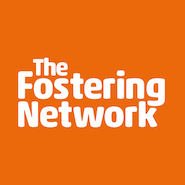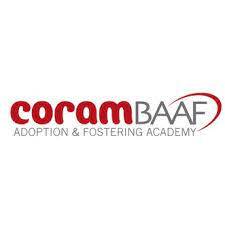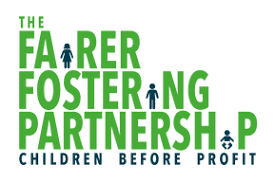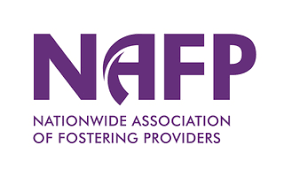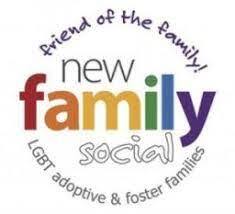Frequently Asked Questions

There are many misconceptions in fostering and we are finding that some people think that their ‘situation’ rules them out of applying to become a carer. Our frequently asked questions will dispell some myths surrounding eligability to become a foster carer.
If you have a question that isn’t answered below feel free to contact us!

No matter if you’re just considering foster care, or are ready to start your journey – Contact our dedicated team and will guide you towards starting your fostering career with The CFT.
Frequently asked questions
Whilst there is no upper age limit to fostering by law you must be at least 21 years old. You will need to be realistic about your age in relation to the age of any children placed with you and how this might affect your ability to foster a child through to adulthood. We would want you to be reasonably fit and healthy and able to take an active role in the child’s physical and emotional well-being. If you would like to talk to someone about your personal situation, please contact us using the frequently asked question contact form above.
Yes! Short-break fostering is a great way to scale up to fostering on a longer term basis. We partner ‘short-break’ foster carers with a foster family so you can really get to know them and their foster children whilst providing a vital service for those who need to recharge their batteries.
Yes, we have many single people, both men and women who successfully foster for The Children’s Family Trust. We are interested in your experience and skills and would want you to think about the support network you’ll need to help you become a successful Foster Carer.
Yes, but you will need to be available to get your foster child/children to school, be there to collect them and be available to care for them during school holidays and when they are ill, much the same as you would do for your child. What’s most important is that you remain flexible and fit your work commitments around the needs of the child and not the other way around.
Yes. Foster Carers are paid a weekly fee for each child they have placed with them. The CFT offers some of the best ‘terms & conditions’ for Foster Carers in the UK. Unlike some other agencies, we do not reduce weekly payments regarding the age of a child, as such our Carers receive the same weekly fee regardless of the child’s age. Our current weekly fee is more than £430 per week, per child.
Foster Carers do need training because care involves more than being a caring person, although that is essential. All prospective Foster Carers are required to participate in The ‘Skills to Foster’ course as part of their Assessment as prospective Foster Carers. Once you are approved as a Foster Carer you will be sent a training schedule by your regional office so you can see what training is being offered each year. The CFT actively encourage Foster Carers to attend training not only for the needs of the children but also to help Foster Carers progress in their professional development.
Yes, we’re interested in the experience and skills you can offer to a child in need of a loving and permanent home. We will talk to you about finances to help you plan realistically for the child.
All carers are linked with a social worker – known in The CFT as the ‘Supervising Social Worker’ – who provides supervision and support for Foster Carers and their families. Supervising Social Workers visit their Foster Carers regularly to check that all is going well and to talk through any problems. In addition to this, we have a 24/7 out-of-hours phone support service so you are always able to speak to a social worker should you need to. Read more about the support that we offer our Foster Carers here.
It is the responsibility of the Foster Carer to ensure that they are registered as self-employed and to arrange for their National Insurance contributions to be met. It is also the responsibility of the Foster Carer to ensure that they complete an annual tax assessment if required. The Inland Revenue operates a favourable tax regime for Foster Carers, details of which are available from the Inland Revenue directly or the Fostering Network. In addition to this, our Head of Finance is on-hand and available to assist and answer any questions you may have.
Yes, we are interested in the skills and experience you bring and what you can offer a child. We are also members of the organisation the ‘New Family Social’ group– which is a self-help membership organisation specifically for LGBT adopters and Foster Carers to help support each other.
Yes. Some Foster Carers have their own children, others do not. The CFT encourages applications from all family situations, whether you have your own birth children living at home or not.
Anyone who applies to Foster must have a full medical by their GP. We need you to be reasonably fit and healthy so chronic health problems or life-threatening illnesses that might restrict your ability to care for a child in the long term will be of concern to us. We will take advice from our medical advisor in these circumstances.
Foster Carers are not classed as employees and register as being self-employed, therefore they do not have an annual leave entitlement as such. The CFT offers ‘respite’ to Foster Carers. This is like a short break so that the Foster Carers can re-charge their batteries and equally is an opportunity for the children to have a break from the Carers also. The CFT offer some of the best respite allowances for fostering in the UK.
Yes. You need to be in settled, secure accommodation and have the space for a child. This means the availability of a separate bedroom. You can be renting and Foster with the permission of the landlord of the property.
Having a criminal record does not automatically prevent you from becoming a Foster Carer. Our decision to proceed or not will depend on the nature of the offence, the length of time since the conviction and your current lifestyle. You cannot Foster if you have a criminal record for offences against children. We will talk to you about other offences including those committed when you were a juvenile. We will undertake enhanced police checks through the Disclosure and Barring Service.
What we do for you
